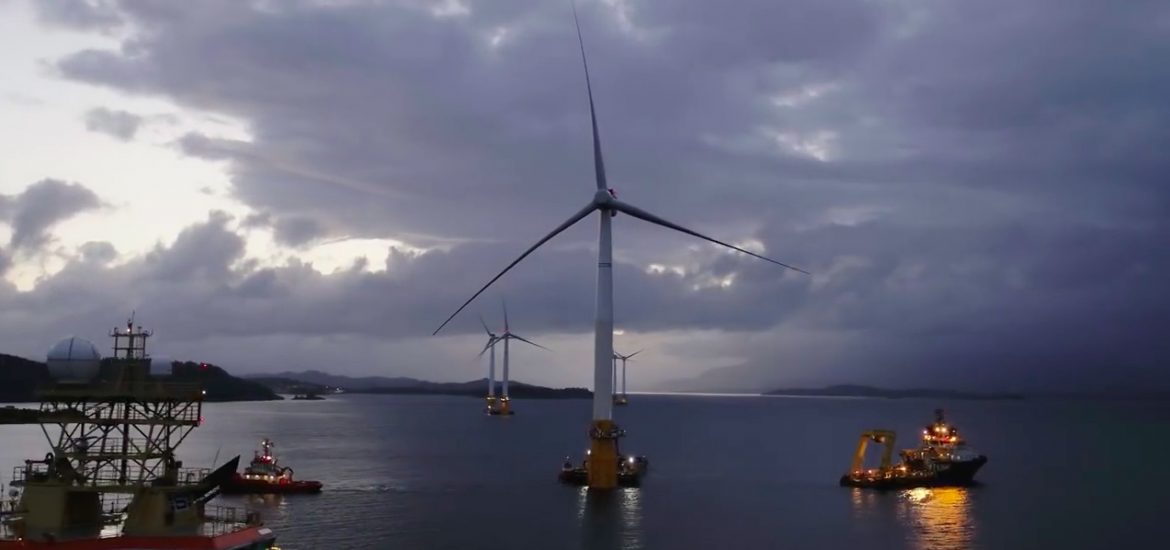
Spain’s Canary Islands are looking to floating wind farms out of sight of its tourist beaches to end the crowded archipelago’s dependency on fossil fuels.
Around 1,000km from the Spanish mainland, the rocky islands have limited space for solar and wind projects and the steep gradients around the island are unsuitable for fixed, offshore wind turbines.
Islands around the world are often the most vulnerable to climate change and rising sea levels. However, many islands contribute heavily to global emissions, often because of an over-reliance on electricity produced from coal and oil.
Norway’s Equinor says it plans a floating wind project near the Canaries to imitate the success of its Hywind project off the Aberdeenshire coast in Scotland (pictured).
Floating wind power is also due to employed elsewhere.
Equinor this month completed the acquisition of a 50-per-cent interest in the Bałtyk I offshore wind project in Poland.
On the Canaries, Alexandra de Marichalar of energy consultancy Enzen in Spain said: “Land is not available and what is available is protected. Offshore renewables are the only way for the Canary Islands to achieve renewable energy penetration targets.”
Renewables provided approximately 11 per cent of the Canaries’ electricity last year compared with about 40 per cent on the Spanish mainland, according to the national grid operator.
Enzen is working with the authorities to install a 5-megawatt floating wind turbine off the coast of Lanzarote.
The company is working on a €15-20 million project to help power a water desalination installation in Arrecife by 2023.
The islands have more than 300 desalination plants which could also benefit from similar direct power-purchase deals, de Marichalar said.
The project could make the Canaries a testing ground for developing renewable sources. The project is also due to include 2 megawatts of tidal energy from the Bombora Wave Power scheme.
“People wonder, ‘Why are you still burning oil here with this exceptional renewable energy potential?’” Gonzalo Piernavieja Izquierdo of the Canary Islands Institute of Technology told Bloomberg. “What we are selling to the world is a vision that the Canaries are a laboratory for testing energy technologies.”
North Sea wind
In the North Sea, Equinor has also signed a contract with the firm Wood to deliver modifications to two offshore installations in the Norwegian North Sea to connect electric power from floating wind turbines at the Hywind Tampen development.
The project aims to replace energy currently generated by gas turbines with power from floating wind turbines between Snorre and Gullfaks fields, cutting emissions by more than 200,000 tonnes per year.
Wood’s work includes equipment installation on the floating wind turbines and upgrades to the onshore control room in Bergen.
The Hywind project in Scotland. Picture credit: YouTube





